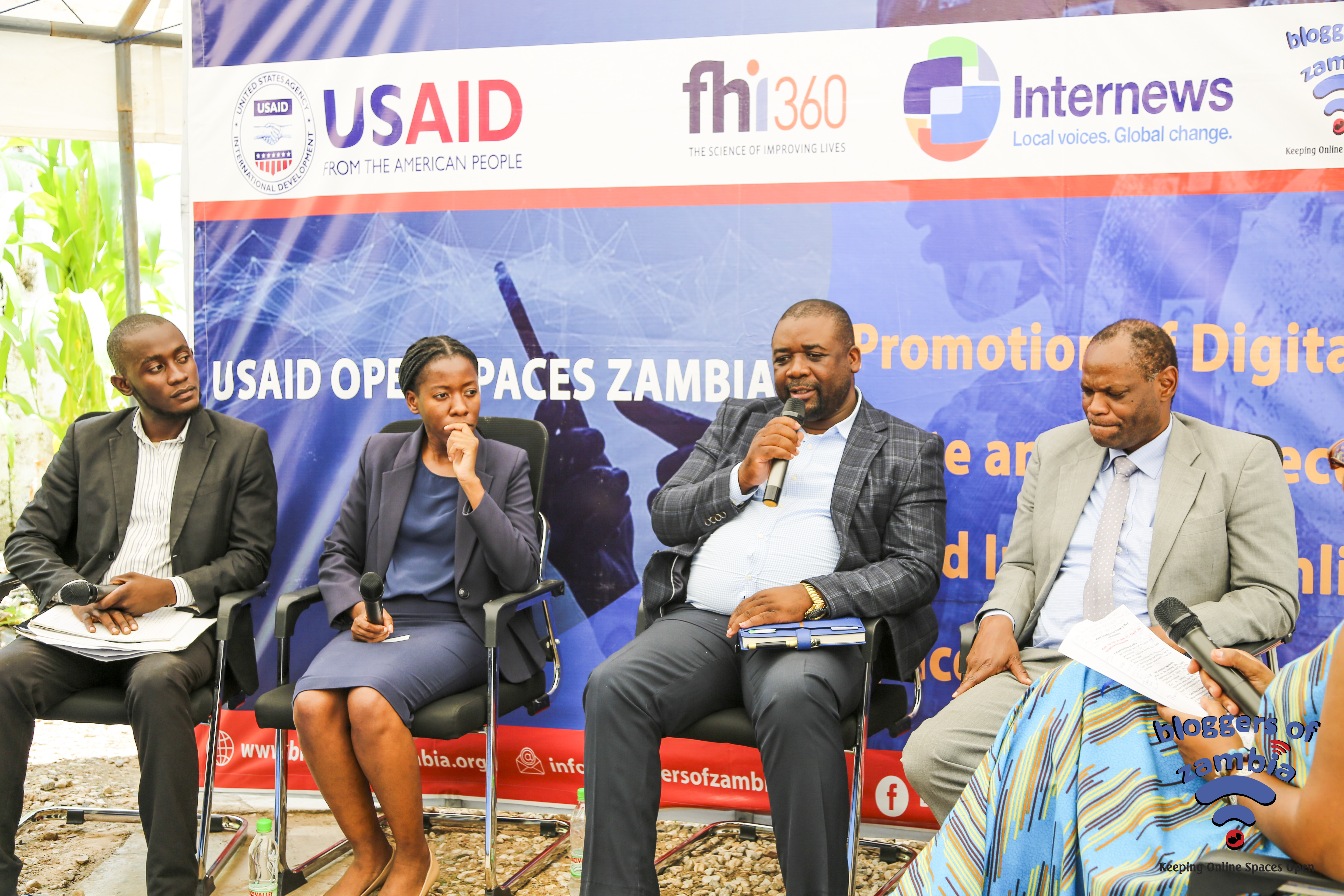Executive Summary
As a precursor to strengthen the democratic foundations of freedom of speech and assembly in Zambia, funded by USAID Zambia, Bloggers of Zambia an independent, not-for-profit enterprise commissioned and undertook a needs assessment survey in four (4) provinces of Zambia namely Lusaka, Southern, Eastern and Copperbelt. The specific districts in which the study was conducted were Kafue, Lusaka, Mazubuka, Livingstone, Chipata, Petauke, Kitwe and Luanshya. The needs assessment was meant to identify and capture digital security behaviours, trends, and needs of at-risk users among the identified target groups in Lusaka, Southern, Eastern and Copperbelt provinces. This needs assessment study provides a basis for establishment and tracking of the impact of the programme areas of interventions over a period of time. The primary objective of the needs assessment was to establish benchmarks for the project at the inception of implementation to establish the conditions against which future changes can be measured.
Methods: The process of identifying quantitative targets involved the use of the Zig Zag method where the result areas, outputs and activities are described. These quantitative targets were translated into questions in a questionnaire which was administered to 1200 respondents randomly sampled from the 4 provinces- Eastern, Southern, Lusaka and Copperbelt provinces, 8 districts (Livingstone, Mazabuka, Kitwe, Luanshya, Chipata, Petauke, Lusaka and Kafue). A total of 300 respondents were selected per province (200 coming from an urban digitally savvy district while 100 were from a rural- less digitally savvy district). Further, of the 1200 respondents, the research targeted 600 female respondents and 600 male respondents. The surveys were administered to the 1200 respondents randomly selected from within the eight districts from public places such as bus stops, shopping malls, teachers from schools, among others. A zig-zag method was used to select the respondents in the communities or zones in each district. In addition, Focus Groups Discussions (FGD) were conducted in triangulating the data and enhancing the quality and were used to qualify the findings from the quantitative survey and better understand the reason behind respondents’ feedback. The FGD conducted no more than 10 people in each district among the purposely selected civil society organisations.
The findings show immense opportunities for the project to develop holistic training and capacity building activities that must be underpinned by inclusive, collaborative and coordinated efforts at the community, district and provincial levels. This report, therefore, is a detailed presentation of
the process and outcomes of the needs assessment study. The report has been segmented into various components highlighted in the table contents.
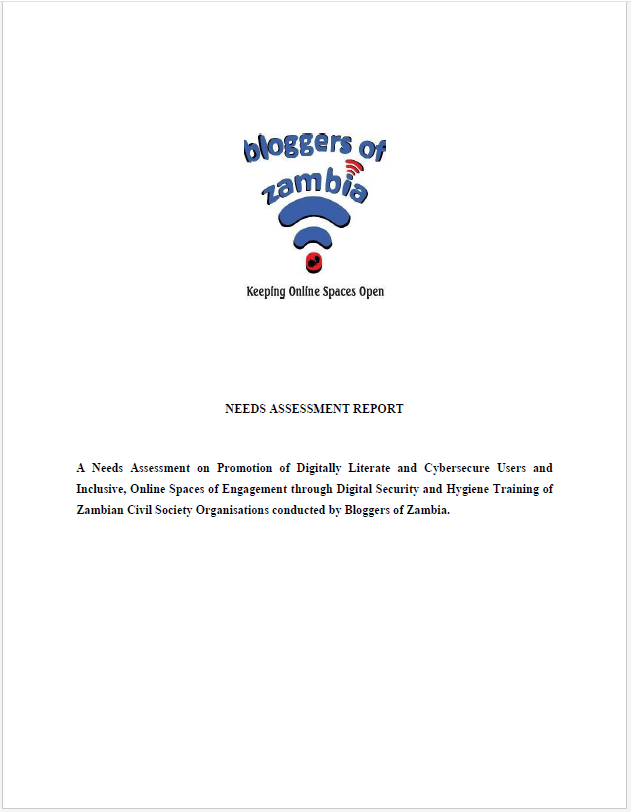
RELATED POSTS
8 February 2024|BY adminNavigating the Digital Age: The Imperative of Data Privacy and Protection
‘Privacy is not an option and it shouldn’t be the price we accept for just...
6 February 2024|BY adminBloggers of Zambia calls for Safer Internet practices
As the world marks Safer Internet Day on February 6, 2024, Bloggers ofZambia would like...
5 February 2024|BY adminSafer Internet Day 2024: Together for a Better Internet
we renew our dedication to creating a safer, more respectful digital space for all. Join...
Write a comment
Search
CATEGORIES
The future belongs to those who believe in the beauty of their dreams.
Explore Portfolio
Popular Post
 National Assembly committees resumeJanuary 31, 2024
National Assembly committees resumeJanuary 31, 2024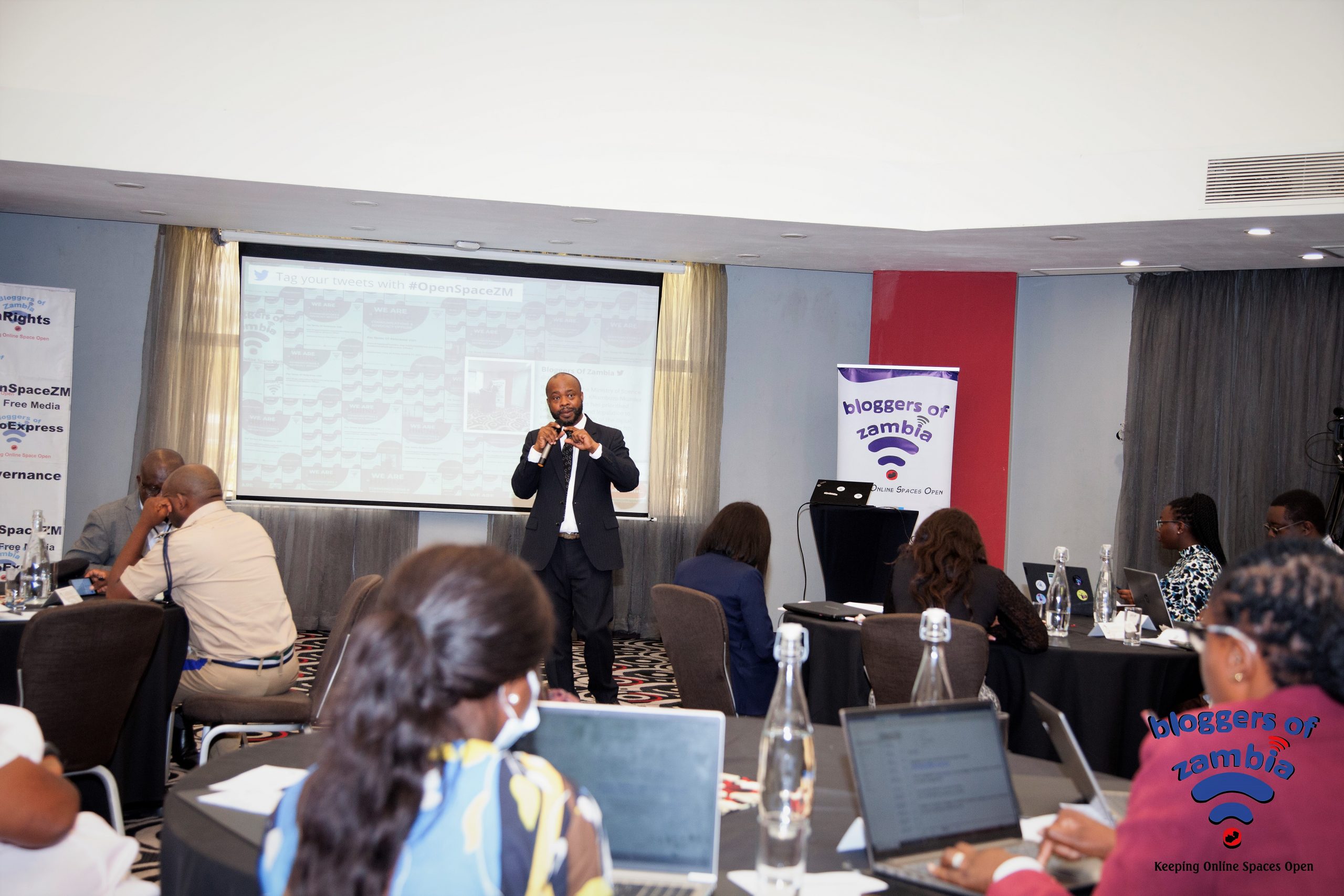 Multi-Stakeholder Meeting on the Zambia…February 23, 2023
Multi-Stakeholder Meeting on the Zambia…February 23, 2023 WE ARE HIRING: COMMUNICATIONS &…February 9, 2023
WE ARE HIRING: COMMUNICATIONS &…February 9, 2023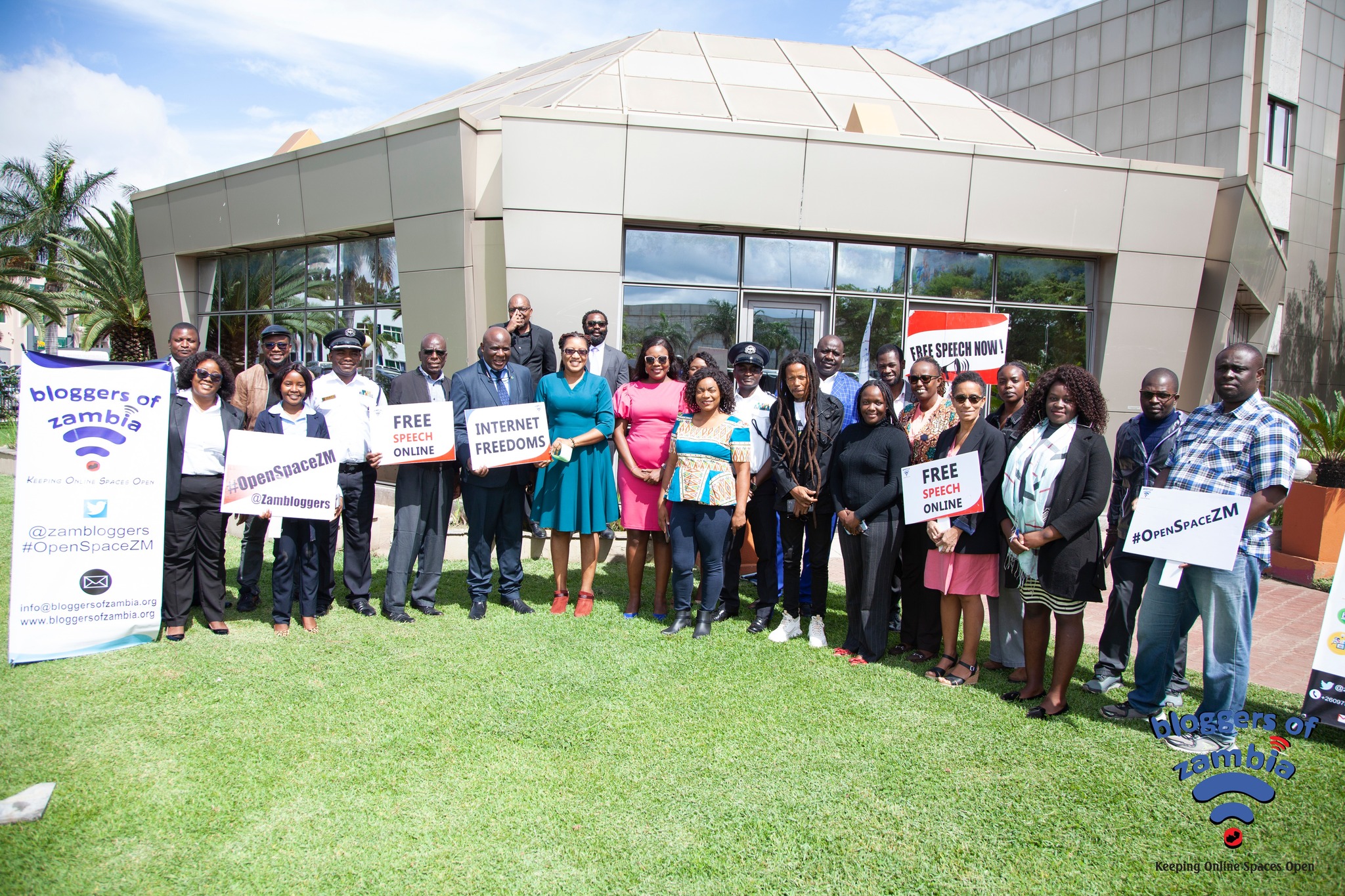 Panel Discussion on Leveraging Freedom…January 27, 2023
Panel Discussion on Leveraging Freedom…January 27, 2023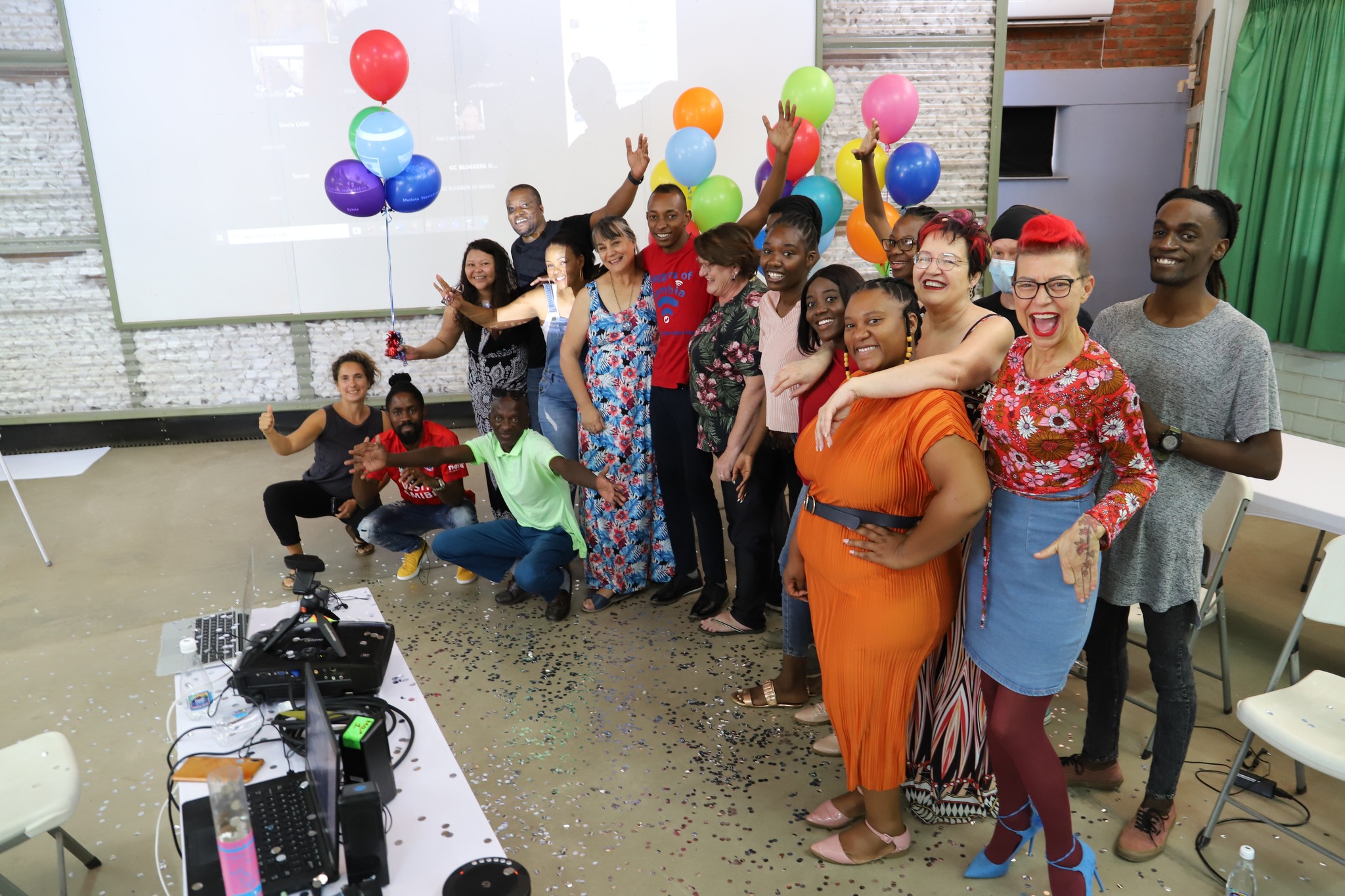 MEDIA INFORMATION AND LITERACY CONNECT…November 1, 2022
MEDIA INFORMATION AND LITERACY CONNECT…November 1, 2022- Motion Urges Government to Improve…October 12, 2022
- The Vice President in ParliamentOctober 7, 2022
- Today in Parliament of ZambiaOctober 6, 2022
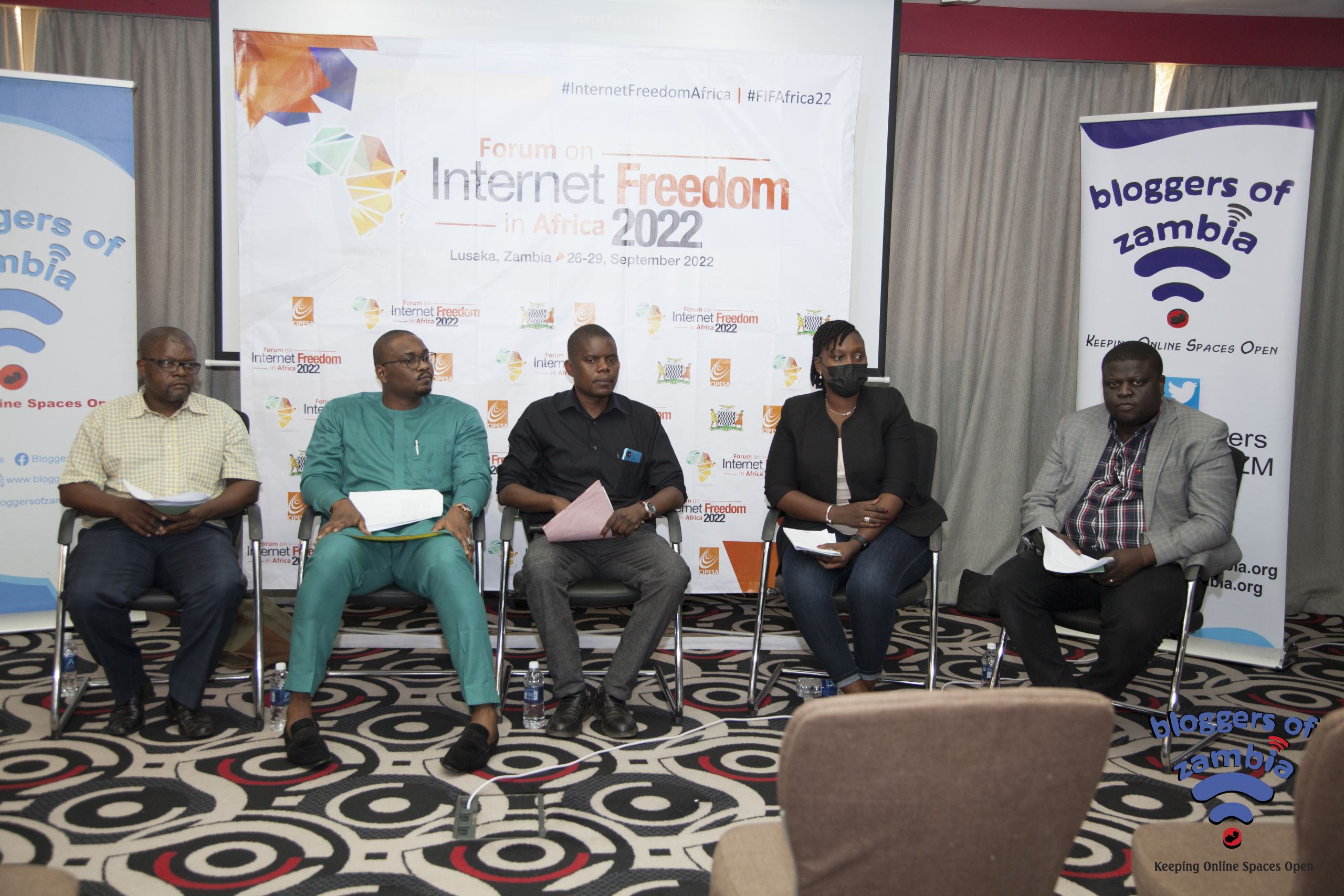 Forum on Internet Freedom Africa…September 29, 2022
Forum on Internet Freedom Africa…September 29, 2022- Zambia’s US$1.3 Billion Extended Credit…September 7, 2022
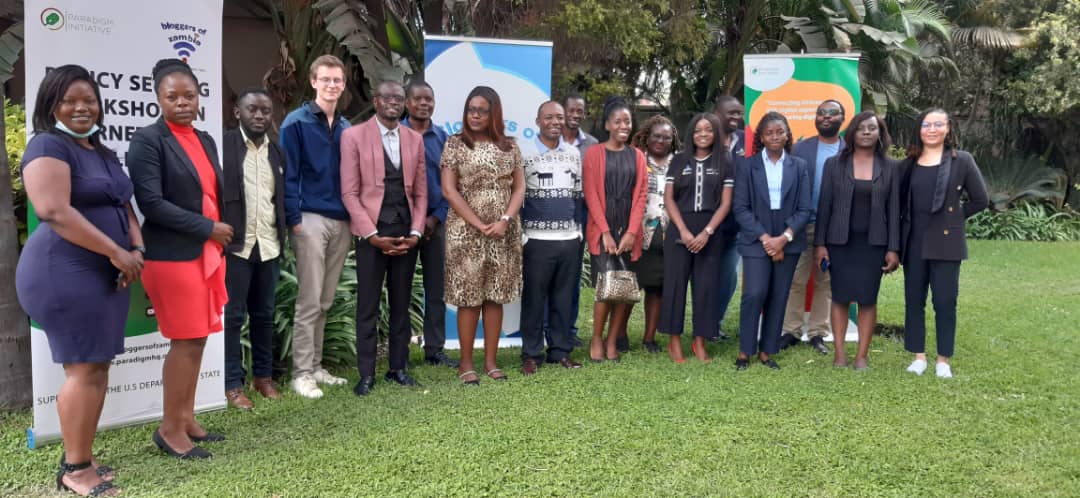 Shaping ICT Policy Workshop with…August 25, 2022
Shaping ICT Policy Workshop with…August 25, 2022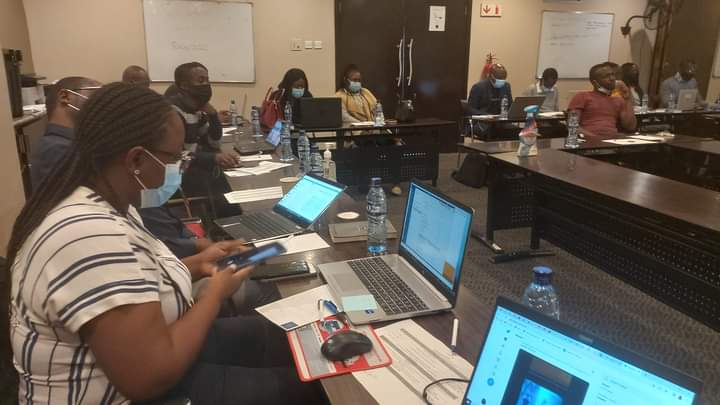 Meet-up for the CSO Networking…August 18, 2022
Meet-up for the CSO Networking…August 18, 2022- Covid-19 Preventive Measures Partially Lifted…August 16, 2022
 Organizational Governance Manuals ConsultancyAugust 15, 2022
Organizational Governance Manuals ConsultancyAugust 15, 2022 Digital Hub LaunchMay 4, 2022
Digital Hub LaunchMay 4, 2022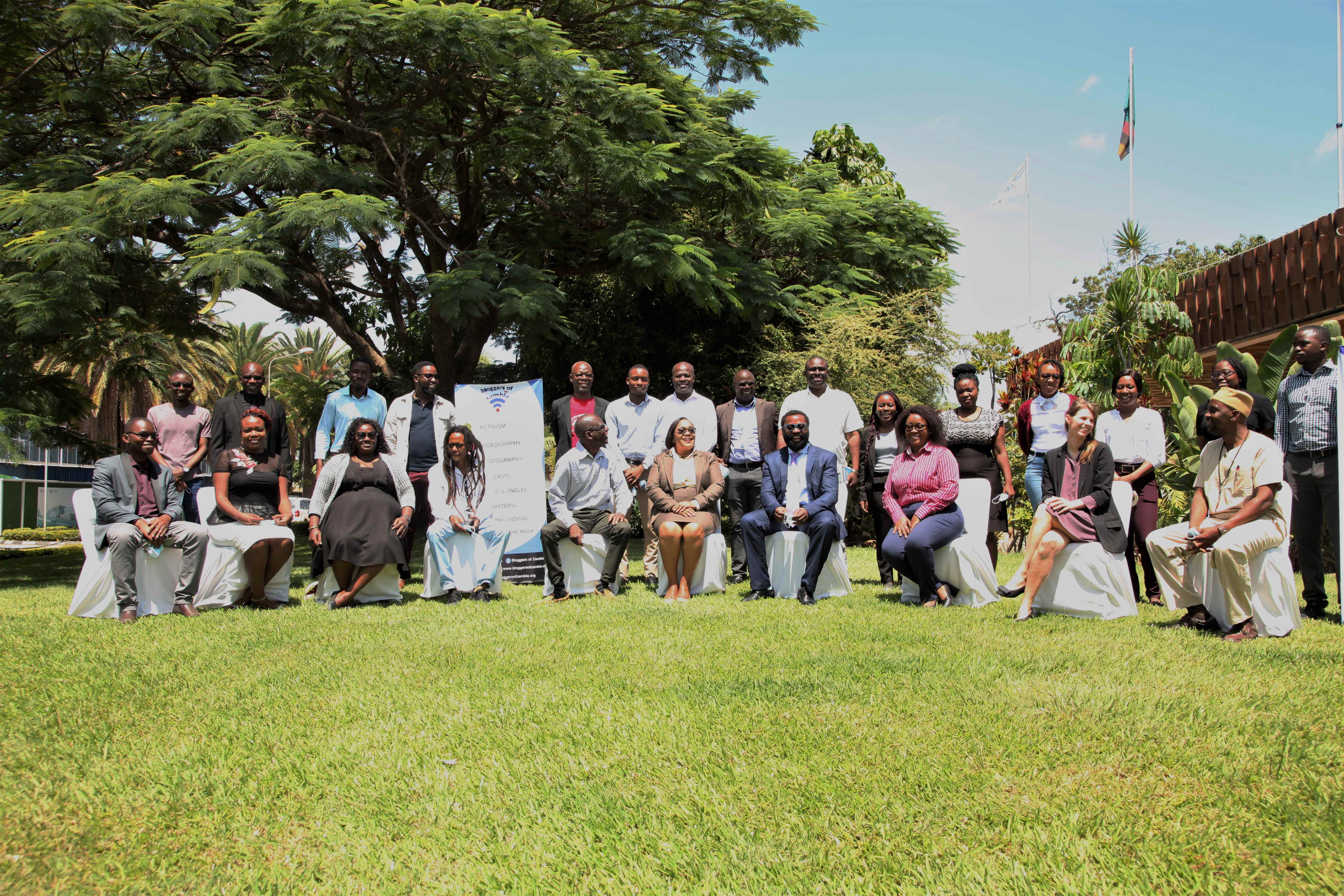 STAKEHOLDERS ROUNDTABLE ON FREEDOM OF…March 3, 2022
STAKEHOLDERS ROUNDTABLE ON FREEDOM OF…March 3, 2022 DEC FREEZES VALDEN FINDLAY’S ACCOUNTSAugust 19, 2021
DEC FREEZES VALDEN FINDLAY’S ACCOUNTSAugust 19, 2021 This is a standard post…August 18, 2017
This is a standard post…August 18, 2017 This is a standard post…August 18, 2017
This is a standard post…August 18, 2017 This is a standard post…August 18, 2017
This is a standard post…August 18, 2017 This is a standard post…August 18, 2017
This is a standard post…August 18, 2017
TAGS CLOUD
#OpenSpaceZM
2021 General Elections
Access to Information Law
Advert
Advertisement
Artistry
ATI in Zambia
bill
Blog
Bloggers
Bloggers of Zambia
Budget Debate
CIPESA
Conceptual
Constituency Development Funds
COVID-19
cyber-security
Cybercrime
Debate
Dr Situmbeko Musokotwane
Economy
Freedom of Expression
Hakainde Hichilema
IBA
Internet
Journalists
law
Legislation
Media
Media Freedoms
Media Rights and Freedoms
Ministry of Finance and National Planning Zambia
parliament
Parliamentary Submission
Patriotic Front
Politics
President Lungu
President of Zambia
Press Freedom
Prime TV
Surveillance
UPND
vaccines
World Press Freedom Day
Zambia
ARCHIVE
- March 2024 1
- February 2024 11
- January 2024 1
- October 2023 1
- September 2023 1
- August 2023 3
- June 2023 2
- March 2023 1
- February 2023 3
- January 2023 2
- November 2022 2
- October 2022 3
- September 2022 2
- August 2022 4
- July 2022 1
- June 2022 1
- May 2022 3
- April 2022 2
- March 2022 5
- February 2022 1
- January 2022 1
- October 2021 4
- September 2021 7
- August 2021 5
- July 2021 2
- June 2021 3
- May 2021 9
- April 2021 1
- March 2021 2
- November 2020 3
- September 2017 3
- August 2017 20
